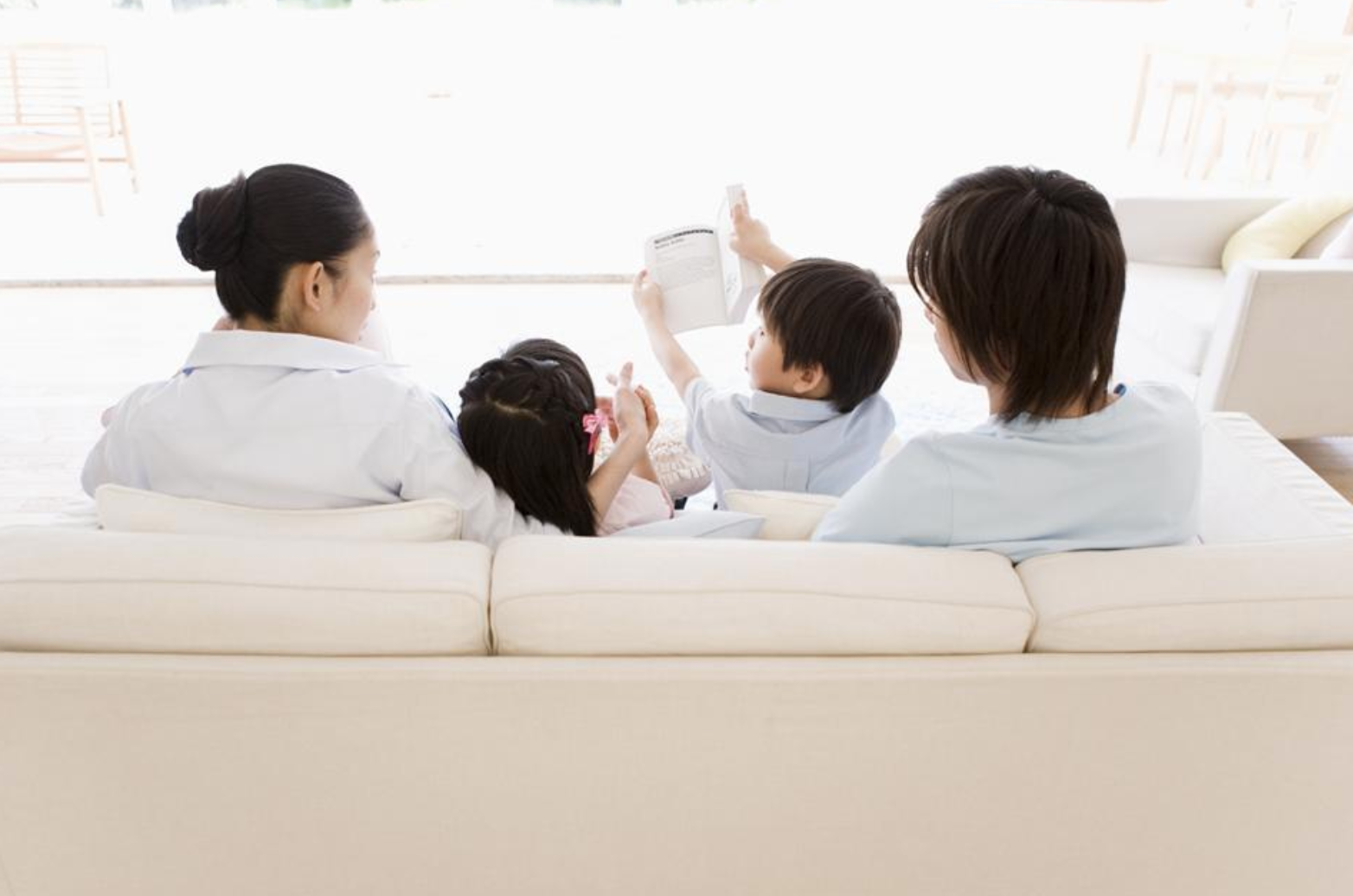
It is true that the Wuhan Coronavirus is a concern every one of us should look out for in case it spreads in our community. The risk it poses is definitely real, especially with a vaccine still not available for the market.
The virus is still spreading and in Singapore, the number of cases is also rising despite the efforts to get it sorted out.
But, this does not mean that we should allow our children to see it as a negative issue, especially now that more Chinese citizens, especially those who have not even been to China, are being singled out.
Here are some of the things you should teach your child regarding the outbreak and what lessons they could take out from it:
Social Studies: Xenophobic and Bullying
Since China is where the virus originated, instances of xenophobia or fear of foreigners, and bullying are rising, mostly towards Chinese citizens.
To some people, every Chinese citizen – whether they have been in China or not – are carriers of the virus. The same treatment is felt by foreigners who visited or lived in China.
To these people who “fear” Chinese people and tourists from China, it is crucial that these “carriers” are banned from entering the country so that the outbreak doesn’t spread.
In Singapore, there was an online campaign that called for the temporary ban on Chinese citizens and travellers who passed by in China. There are also cases where Chinese citizens are bullied because people don’t want them to spread the virus in the community.
Activities with your child:
If you want your children not to share this xenophobic sentiment towards their classmates and other Chinese nationals, let them know what the virus is all about and how it spreads.
You can also teach your children that these Chinese people and other foreigners who have been in China shouldn’t be seen as carriers. Even they are caught unaware regarding the virus and there’s no “clear” evidence that shows that every Chinese has the virus.
You can talk about the signs of bullying in the school with your child and how to stand up against bullies as we did here.
Social Studies: Fear-Mongering and Fake News Spreading
Social media has become a way for many people to get their information and because it is too popular, there are shady media outlets and social media pages causing panic by sharing fake news.
These posts can talk about the shortage of face masks and food or the spread of the virus in Singapore. Several countries have already ordered a crackdown against these “misinformation,” including in Singapore.
Activities with your child:
Teach your child how to read between the lines and identify which is fake news from real news especially on the internet.
You can inform them about credible news sites like Reuters, CNN or The Straits Times for information, or guide them through the government’s websites on top of our recommendation on other parental control on the internet.
If they have any questions about the evidence or speculations being provided, you can help them analyze the information with critical thinking and discuss it. Helping them develop skills to sort real and fake news will help them through similar situations where fake news and fear-mongering are rampant.

Social Studies: Unnecessary panic and selfish hoarding
Since there is fake news and fear-mongering online, it has caused several people to panic and takes their prevention measures to an extreme level.
Some of them have hoarded face masks, food supply, antibacterial soap, and many others even though other people wish to buy them. There are even a few people who are hoarding to get a profit.
Activities with your child:
If your child sees that people are panicking around them, especially if you are panicking because of the outbreak, they will also feel the same way. Take some time to stop, readdress the issue and speak to your child about what you think about the outbreak.
Be honest about your position about the outbreak and have an honest discussion with your child on how he perceives hoarding and unnecessary panic.
Teaching children morality is crucial in today’s age because one’s environment can affect what they believe is right as we have shown here. Talk about the ways society should do in times of crisis like now and how their behaviour will impact others.
Geography: Chinese cities and other countries affected by the virus
Some of the fake news that is popping about the virus talk about the number of countries and Chinese cities affected by the virus.
They would say that the cases there are getting worse, and in some instances, they would say other countries not included in the official list have also gotten confirmed cases of the virus.
In China, almost 31 provinces in the mainland have reported cases of the virus. Most of these cases are located in Hubei province where Wuhan is located. The Special Administrative Regions of Macao and Hong Kong also reported that the virus has also entered the country.
Outside China and its other territories, 24 other countries have reported cases of confirmed coronavirus.
Activities with your child:
Bring out a world map and indicate to your child where each country is located in proximity to China. Same goes for provinces in China in proximity to Wuhan. You can also motivate your child’s interest in Geography here.
You can divert the subject by talking about each province’s and country’s speciality and uniqueness. For older children, you can explore further by talking about how each country is dealing with the Covid-19 situation.
History: History of SARS and How Did Singapore Overcome It?
In one article, it is said that children don’t really understand why it is a big deal to focus on the Wuhan Coronavirus because they did not experience a similar outbreak in the past.
Singapore has experienced a major health outbreak in March 2003 and it was the SARS outbreak. SARS or Severe Acute Respiratory Syndrome is also caused by a coronavirus like the Wuhan Coronavirus.
The virus was transmitted through direct contact and was brought in the country by three Singaporean women who got the virus during a trip to Hong Kong. One of the women became the main source of the outbreak in the country.
When the cases continued to rise across the country, the government immediately responded by identifying key facilities that will isolate and treat SARS patients.
They also activated the Infectious Diseases Act on March 24 to ensure that a quarantine period is followed by all the individuals that were in contact with SARS patients.
New travel guidelines were also enforced in public locations and airports to ensure that people who are displaying symptoms of the virus are found.
The outbreak was successfully contained after 2 months and the World Health Organization verified it on May 30. Throughout the span of the virus outbreak, at least 238 people were infected by the SARS virus and killed 33 people.
Activities with your child:
You can make learning history interesting at home. You can explain the history of SARS to your child and the steps that the Singapore government took to ensure the safety of her citizens.
You can dig out old newspaper articles and compare with the current news on the differences between SARS and Covid-19. Talk about how people reacted during the SARS crisis and how children like their own age are affected.

Biology: How does the coronavirus attack the body?
The coronavirus – whether it is SARS-Cov or the nCov- is usually transmitted to a person after direct contact with someone who has the virus. The virus goes into the body and attaches itself to the lungs.
Once in the lungs, it will then start replicating and cause the person to develop flu-like symptoms such as sore throat, cough, and fever.
But, as the virus grows, the person would slowly develop breathing problems which can lead up to pneumonia. Since there is no medication available to stop the virus, patients are given breathing support to overcome the virus.
While some cases got better, others were killed by the virus. Old people and those with medical conditions are seen to be at high risk of the virus.
Activities with your child:
One of the major points that people don’t understand about the Wuhan coronavirus outbreak is how the coronavirus impacts the body.
Teaching your kids this information is key to helping them to understand how coronavirus come about and spread from human to human.
For younger kids, you can talk about the symptoms and the importance of maintaining good hygiene. You can go deeper with the older ones by naming the organs that the virus will affect and the sequence of it doing so.
Economy: Impacts of the Coronavirus to Businesses
The Coronavirus does not only affect people across the world, but it also has implications to the economy that can prove irreparable if the virus continues to spread.
In China, for instance, several businesses and public establishments have been closed since the virus outbreak began. The closures led to many people unable to buy basic commodities or even work, which could affect their families living in China or outside China.
Businesses also experienced heavy financial losses, which may cause them to declare bankruptcy and kick a lot of people out of their jobs.
The closures also affected global trade since many components of many products are made in China. With this said, it has caused a shortage of certain products such as toys, clothes and even big equipment.
In Singapore, the virus outbreak has affected the economy as well, mirroring what happened to Singapore’s economy during the SARS outbreak. The travel restrictions in place, as well as other preventive measures, have reduced the influx of business from China, as well as trust in commercial goods from the country.
Activities with your child:
For your kids, it may be difficult to explain how the virus’s impact on the economy is important to them. But, you can point out that some of their favourite toys can no longer be bought because they were made in China.
If you have relatives in China, you can say to your child how the virus has affected their jobs and what it means to their families. This will give your child a clearer perspective that it is not just health which the virus can affect lives.
Final Thoughts
The reality of the Wuhan Coronavirus cannot be ignored since the case continues to grow each day. However, there are some points during this outbreak that your children should know how to respond to properly.
We hope that this article can help you explain the situation to your children and help answer some of the inquiries they may have about the outbreak. Stay safe everyone.
As parents, we want the best for our child. During this crisis, there is a lot more you can do to keep your child safe and here is how:
Wuhan Coronavirus Outbreak: Why Schools in Singapore are not Closed?
Compulsory Leave of Absence due to Wuhan Coronavirus Outbreak: How are Students Affected?
